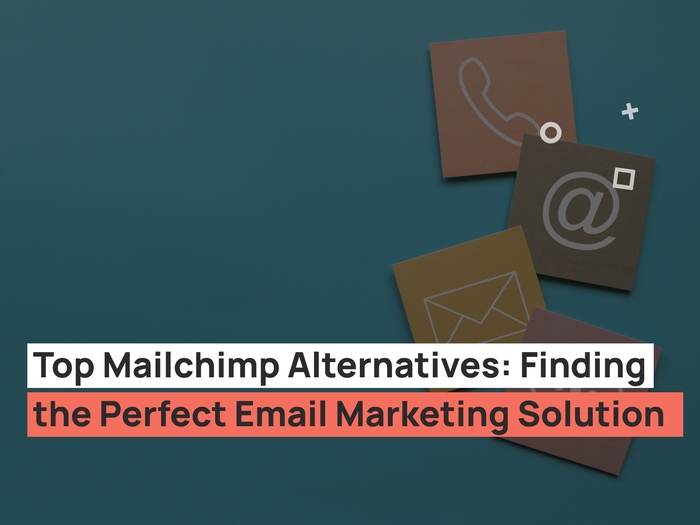Organic traffic contributes to 53.3% of traffic on search engines. Therefore, if you’re looking for strategies to increase traffic to your website without stretching your budget, you are in the right place.
We have actionable tips that will help you attract clicks and boost your ranking on search engines. So, in case you’re wondering, organic traffic is free. It’s the opposite of paid traffic.
The success factor for organic search is search engine optimization. 81% of people search for products or services online before making a purchase.
SEO improves your visibility and ranking on SERPs. Working with a digital marketing agency will help you achieve your SEO goals and increase organic traffic to the website.
However, you may also consider using the strategies below:
10 Simple SEO Tips To Increase Organic Traffic In 2022
As more people continue to depend on online platforms, you need to make sure that you maintain a high position on search engines.
It helps to drive traffic and increase the number of clicks to your online platforms. So, let’s dive into the SEO strategies that will improve your site ranking on SERPs organically.
1. Optimize website for mobile view
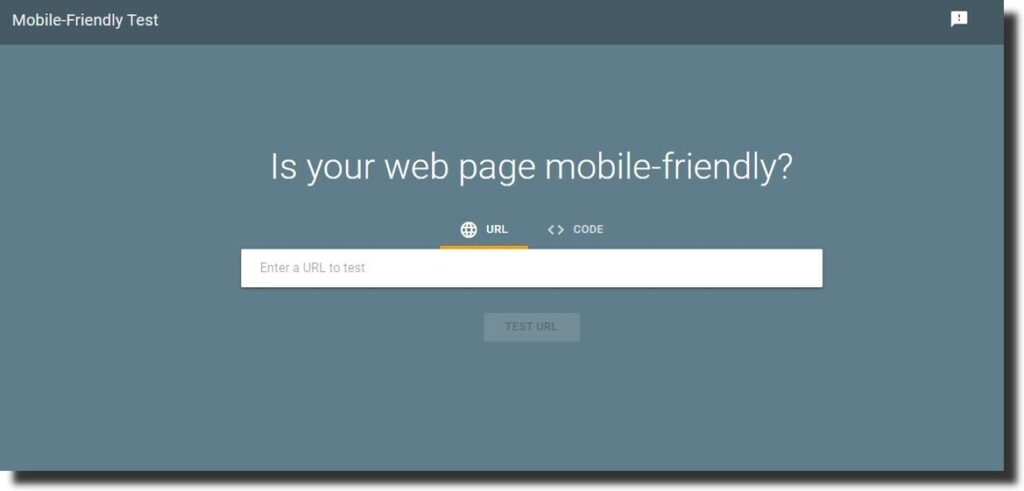
67.1% of the global population uses mobile devices to access products and services on the internet. With such a high population, your website should also be mobile responsive to improve organic traffic.
As a WordPress web developer, investing in a mobile responsive theme should be a top priority. Besides, there are various WordPress plugins to use. An example of a plugin to use is the AMP for WP.
A mobile-friendly website is easily accessible by users using various screen sizes. With the Covid 19 pandemic, the eCommerce business has had an increase in online sales.
Mobile eCommerce has been on the rise, contributing to 72.9% of the eCommerce sales globally. You can test if your website is mobile responsive using Google’s free tool. That is a Mobile-friendly tool.
2. Improve page speed
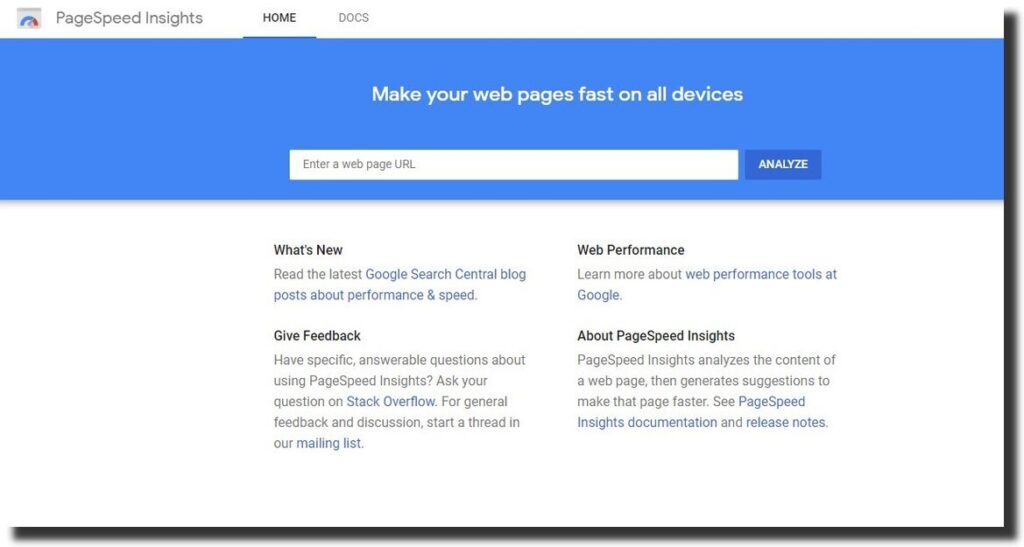
A slow website increases the bounce rate. The average time a user spends on a website is 2-3 seconds. Hence, if it takes longer to display, users will quickly leave your site.
One of the tips of increasing page speed is by removing unnecessary codes. You can request your website developer to clean up the website code for you.
Another strategy to increase page speed is through image optimization. Examples of WordPress image optimization plugins to use are – compress JPEG & PNG images, Imsanity, Imagify, and Smush, among others.
Since page speed is a ranking factor on Google and a technical SEO, you may want to implement lazy loads. It means that website images do not load fully. Instead, it only loads a section that a user is interested in while the rest display on demand.
Website speed is an SEO factor that increases organic traffic to a website, eCommerce site, and blog.
3. User Intent
As a content creator, you need to publish high-quality blogs that meet the searcher’s intent. That is, it should answer the searcher’s query.
For instance, when you’re publishing a blog, it should offer value or a solution to a query. Start by researching to identify your audience’s pain points before you provide a solution.
Publishing user-centered content ranks on SERPs and attracts organic traffic. You can also use a platform to generate content ideas for your website and blog.
With platforms like Quora and Reddit, you can get topic ideas for your blogs. It helps you write content that ranks on search engines and relates to your audience.
4. User Experience
Enhancing the user experience increases traffic to a site. Before you publish your blog or website, have an idea of how you want people to feel about pages.
For an eCommerce website, customers should identify and add products to a cart at ease. Also, it should be easy to make payments and log out of the site.
User experience is simply about how a customer interacts with a page, website, or blog. It should be fast to load, mobile-friendly, and easy to navigate.
This means that your website should have a simple site structure. It not only works for search engines but Google as well. Google relies on the site structure to crawl it before indexing.
5. Update old content
Do you have old content that was performing well on SERPs? Content quickly gets outdated as you continue to publish posts.
Updating content helps you to stay on top of your competition. An-up-to date blog changes the publishing date, statistics, and content format.
Before users click on a site, they will check whether the publish dates are current and the content details. For example, with the current global pandemic, the online platform has become a go-to solution for most internet users.
Therefore, your content needs to be up-to-date to accommodate the changes and offers insights. It also builds trust with the searches and compels them to click. It increases organic traffic to your site.
Therefore, consider updating old blogs and publishing new content regularly. But, how do you identify a post to update?
Use Google Analytics
Google Analytics is free to use, and it provides details about your website activities and performance. To discover a blog that requires an update, log in to Google Analytics and click on Behavior.
Click on site content and identify a well-performing post. Rewrite the post and publish it as a new blog. As a result, you may realize the content performs better as compared to a previous post.
6. Optimize for On-page SEO
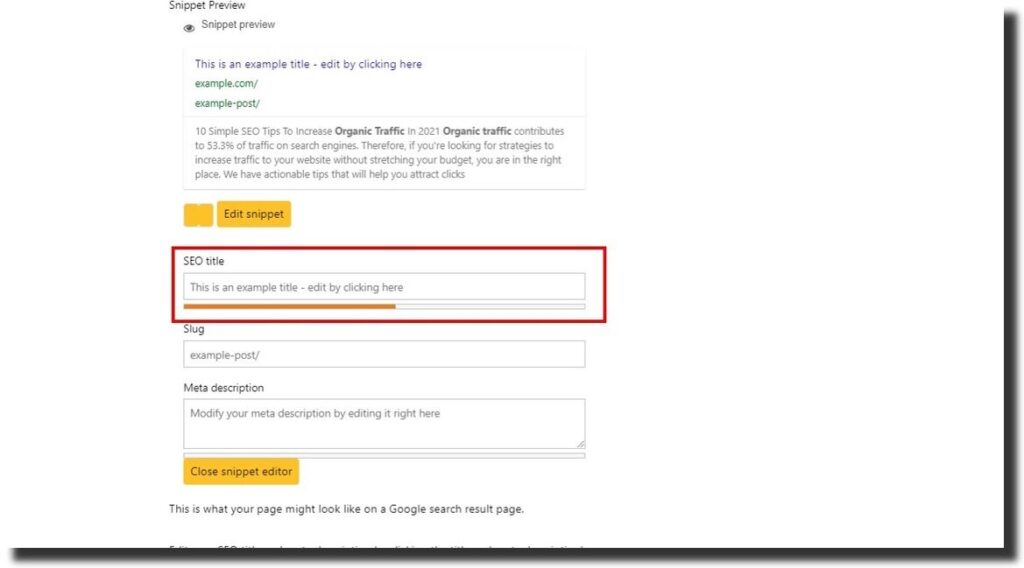
On-page SEO affects your website directly. On-page SEO is about optimizing title tags, meta descriptions, content, etc. It helps to improve website visibility on search engines and boost organic traffic.
To optimize a WordPress website with on-page SEO, the best plugin to use is Yoast. It has several guidelines that guide you with website optimization.
You might also consider working with a web design agency to help you optimize your site or blog for on-page SEO. Here’s how you optimize your website for on-page SEO:
Meta description
Meta descriptions improve the organic CTR of a website. Optimizing the meta description with keywords attracts users to clicks on a website.
Pages with meta descriptions attract more clicks as compared to pages without one. Most internet users will read the meta description to conclude whether to click or not.
As you publish a website, you need to write a meta description for your website.
High-quality SEO content
Publishing high-quality content attracts organic traffic to a website. You may consider hiring a content creator or copywriter to create high-quality content for your site.
It should be unique, valuable, and matches the searcher’s intent. With the blog section, you can publish long-form or short-form content. In addition, you need to optimize the content with keywords.
Including primary and secondary keywords increases traffic and ranking on search engine results pages.
Make use of various header tags.
Header tags work for your users and SEO. That is, using H1 to H6 in your content. As a simple rule, you need to include the keyword in the various headings.
Keywords optimization
Using keywords is very crucial when it comes to on-page SEO. They are the top ranking factors in search engines and attract organic traffic.
Keywords can be long-tail or short-tail. As a content creator, you need to use keywords throughout your article without stuffing the content.
Keyword stuffing hurts your SEO and ranking. It ends up affecting your SEO visibility on search engines. Tips to using keywords effectively are on the headlines, title tags, URL, and meta descriptions.
With a blog, make sure that you use the keyword in the first paragraph of the article. For an eCommerce site, you need to use them in the product description and URL.
Additionally, you need to use the keywords frequently throughout the blog post.
7. Repurpose content
If you’re looking for ways on how to increase organic traffic by repurposing content, we got your back. Repurposing means reusing content and publishing it in another form.
For instance, you can repurpose a blog post to a podcast or YouTube video. It helps to drive organic traffic by reaching a wider audience.
Most internet users will prefer watching a video, while some may prefer reading a blog post. As a marketer, you may consider reusing high-performing blog content to create a video.
However, you can not use any post for repurposing. Start by checking the performance of your blogs before you select the best performing. Later, as you publish the video on YouTube, you can update the post by embedding the video.
The benefit of repurposing content is to increase visibility on SERPs with the content in blog or video format.
8. Implement structured data
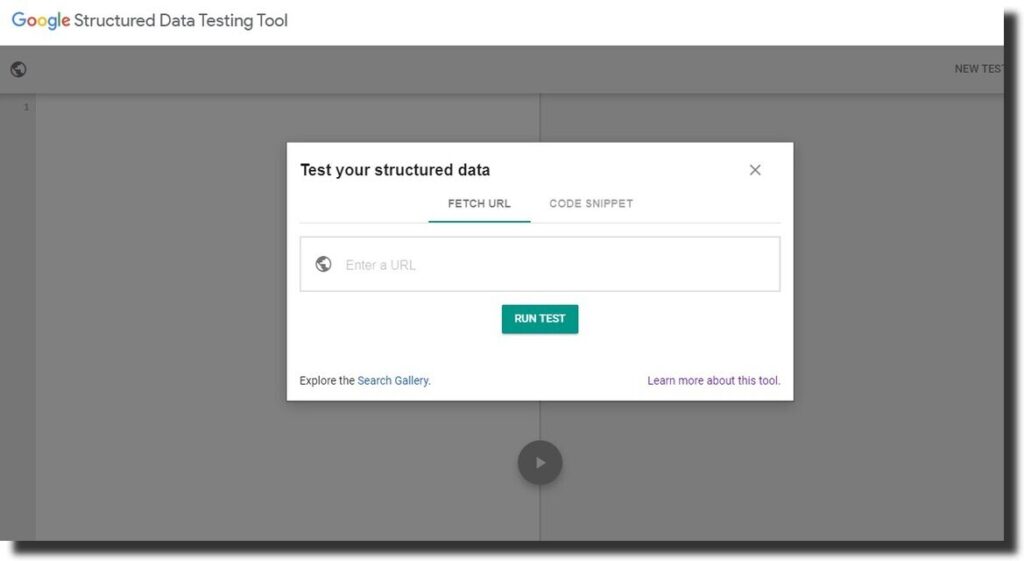
Search engines do not understand the content on a website the same way a user does. It uses a markup language to crawl, understand and display results after a user’s search.
With structured data, search engines will determine if your site meets the searcher’s criteria. To test if your site uses the markup language, paste your website URL on Google’s structured data testing tool.
If you’re new to structured data testing, check out our guide here. It also increases your eligibility for rich snippets. Let’s have an overview of the rich snippets.
A rich snippet is the results that appear on Google and answers a user’s query. For most users, if the rich snippet offers a solution to their search, they are not likely to view other web pages.
Are you interested in optimizing your site content for a rich snippet? Your content cannot feature for rich snippet without making an extra effort. Begin by checking if your website content is eligible for a rich snippet using Google’s rich results test tool.
A rich snippet can be a review, top stories, video, event, etc. There are different types of snippets to use. Begin by identifying the most suitable one before optimizing the content to feature for rich snippets.
9. Include keywords
Keywords help to increase organic traffic, especially if your site ranks for a specific word or phrase that a user uses on a search query.
For example, if a user searches for, ‘how to design a WordPress website and you’re ranking for a keyword, WordPress website, your content is likely to appear on the first page in Google.
Therefore, before you decide that you’re ranking for a specific keyword, identify keywords with high search volume. To make it easy, consider using software like – Ahref keyword explorer, Google keyword planner, and Moz keyword planner.
Keywords are the best organic traffic strategy to keep in check. With the right keyword, you can easily rank on a search engine’s top pages.
Long-tail keywords have more chances of attracting traffic to a site as compared to short-tail keywords. An example of a long-tail keyword is – Shopify website design.
The above long-tail keyword is easier to attract users looking for Shopify web design tips/ services on a search engine.
10. Have a linking strategy
Links are an important part of technical SEO. Both backlinks and internal links increase organic traffic to a website. Linking creates a relationship with other pages that are relevant to your content.
With internal linking, you need to link to other pages or posts within your site. Check other pages within your site that relate to your current article and link to them.
It makes it easy for site users to discover valuable content within your site.
With backlinks, link to sites that have higher domain authority. In addition, links should be from sites that offer value to your audience. Another way of earning backlinks is through guest posting.
Guest posting is part of link building strategy as well as a strategy to increase organic traffic. It means that you publish posts on another website, but you include links to your site.
It increases organic traffic when users click on the links but land on your website.
Bonus SEO Tip: Carry out an SEO audit
Have you thought about auditing your site? An SEO audit checks if there are issues affecting the visibility of your site on search engines.
An audit highlights the technical, on-page, and off-page factors that may affect the organic traffic to a page. An SEO audit helps to attract visitors and retain existing clients.
For instance, it highlights issues such as – web crawling, images, content, URL structure, meta descriptions, keywords, etc.
Using the above tips, you can increase your organic traffic and stand out from your competition. It also helps you make long-term goals.
Benefits Of Organic Traffic
From the above tips, you can increase organic traffic to your site without stretching your business budget. Organic traffic is different from paid search.
In case you’re wondering whether there are benefits of SEO organic traffic, continue scrolling below. Before we get into the benefits, let’s have a look at an example.
When a user types a query or keyword on a search engine like Bing or Google, the results are from an organic search. However, there are search results that have an ad notification.
Such results are not organic. That is a form of paid advertising. If your site appears on a search results page and a user goes ahead to click, you benefit from organic traffic.
Do you have an idea of the benefits of using SEO for organic traffic? These are:
1. Saves you money
Unlike paid traffic, where you use campaigns to increase the click-through rate to your site, organic traffic relies on SEO to improve ranking on search engines.
Organic traffic saves you money. You can channel the money to other business efforts like hiring a digital marketing and SEO expert.
2. Builds trust with new visitors and potential clients
Most internet users click on the results that display on the search engine’s first page. If your site makes it to the first page in Google, it builds the user’s trust and attracts them to click.
It is not as easy ranking on Google’s first page. Remember, you are competing with millions of sites to secure the top position. Appearing on the first page attracts clicks from visitors and increases the credibility of your page.
3. SEO attracts more clicks compared to paid results
How often do you click on paid results on a search engine? Organic search increases the click-through rate as compared to paid media.
Hence, if you’re looking for ways to drive more traffic to your site, consider having an SEO strategy that will work for your goals.
4. Competition
Are you looking for ways to help you stand out from your competitor? With a proper SEO strategy, you can increase your online presence on SERPs and beat your competition.
For example, if your competitor is using paid media, you can use visuals on your site. Visuals, such as videos, images, and infographics, attract more views on a page.
If you make it to the first page in Google, it is not easy for your competition to beat you out. According to most marketers, SEO helps to improve the online presence and ranking on search engines.
5. SEO increases the user experience
SEO improves the overall experience a user has on your site. Search engine optimization can either be technical, on-page, and off-page. Here’s how optimizing a website increases organic traffic to your site.
First, it improves your content marketing strategy, website architecture, page speed, mobile responsiveness, indexing, crawling, and linking.
SEO works for the search engines and users as well. Optimizing your site, blog, and social media earns you organic traffic without spending money as in paid traffic.
6. Organic traffic earns you long-term results.
One of the reasons you should use the SEO tips above is to increase organic traffic. Organic traffic earns you long-term results.
Although paid traffic boosts your traffic as well, how long can your budget sustain the strategy? You can use PPC campaigns to promote a blog or a product in your business.
Organic traffic has long-term results as compared to paid traffic. You can also use both paid and organic traffic to attract users to your website. Some users may prefer results from paid traffic, while others may prefer results from organic traffic.
Difference Between SEO organic Traffic and Paid Traffic
Search engine optimization improves organic traffic to a website. If you’re looking for the difference between organic and paid traffic, check out the table below.
| Organic Traffic | Paid Traffic |
| It is cost-effective as it makes use of SEO | Makes use of paid strategies like PPC campaigns. |
| SEO has long-term goals. It is something that you work on for some time. Includes content, linking, meta descriptions, crawling, website design, and architecture, etc. | Best for short-term goals. PPC campaigns can be expensive. Best for quick results. |
| It helps to outrank a competition | It is more target as compared to organic traffic. |
| SEO may take some time to yield expected results. For Instance, you cannot rank on search engines immediately after you implement SEO. | It drives results faster. For instance, if you are promoting a page, offer, or product, you’re likely to generate leads and drive conversion faster. |
| Attracts clicks on SERPs when a site ranks on the first or second page in search engines. | Most internet users are reluctant to click on paid results on a search engine. |
| Increases the credibility of your site. | Works well for specific results as compared to general search result solutions. |
Should You Increase Organic Traffic With SEO?
As earlier mentioned, organic traffic relies on SEO for your site to rank on search engines. If your site appears on the first or second page of Google after a user’s search query, you earn organic traffic from it.
There are multiple tips for marketers to use to increase organic traffic. If you’re not ranking on SERPs, consider using the strategies above and realign them with your goals.
Are you aware that you can calculate the organic traffic to your site? With an organic traffic formula, you can identify whether your traffic generates the expected results.
In conclusion, if you’re looking to increase organic traffic to your site, you may consider working with a digital marketing agency or consider taking up a digital marketing course to get yourself up to speed with the know-how’s.



